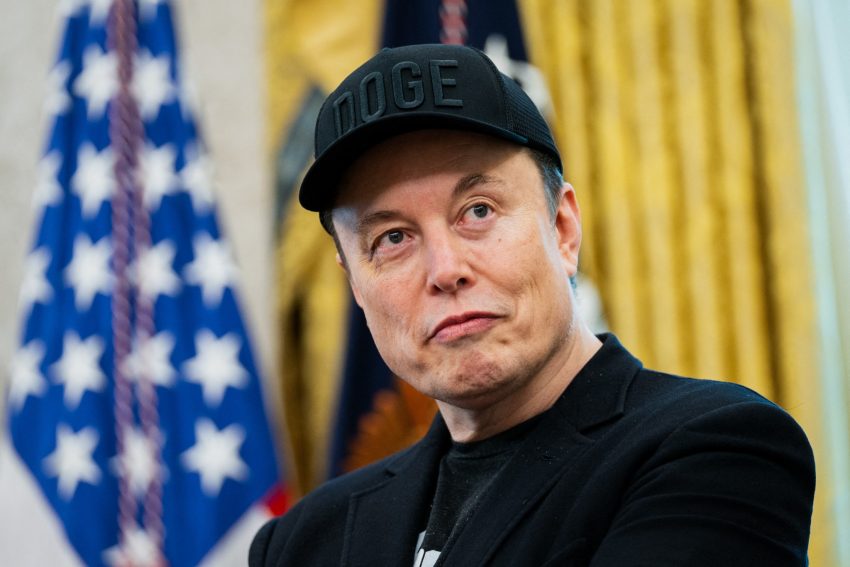New Tesla Vehicles Now Feature Grok AI Chatbot
This week, owners of new Tesla vehicles discovered that they were receiving a unique addition: starting July 12, all new Tesla cars come with the Grok AI chatbot pre-installed and ready for use. Grok, developed by xAI, is an AI company founded two years ago by Elon Musk, the CEO of Tesla. This move is reminiscent of a gas station offering a free car wash with a fill-up, as Musk continues to integrate his various business ventures to provide added value to customers.
However, it’s worth considering who benefits more from this “gift.” The integration of Grok into Tesla vehicles further intertwines Musk’s businesses, creating a complex web of interdependencies. With the update, Grok is now accessible via a button on the in-car display’s homescreen. Users can ask it questions or assign tasks, similar to other large language models like OpenAI’s ChatGPT or Google’s Gemini. While Grok currently cannot control vehicle functions such as windows or air conditioning, there are numerous potential uses for an in-car LLM, ranging from responding to emails to summarizing books.
The partnership between Tesla and xAI is expected to make Tesla a significant customer for xAI. Although no financial details have been disclosed, Tesla sold nearly 1.8 million vehicles last year, which means millions of customers could begin using Grok. Even a small percentage of these users could significantly increase computing costs for xAI, which is reportedly spending $1 billion a month to build data centers and acquire computer chips to compete with other AI companies.
Data Sharing and Privacy Concerns
It is essential to consider what data sharing might occur now that Grok is installed in Tesla vehicles. Tesla states that driver conversations with Grok will be “securely processed by xAI” according to its privacy policy, with conversations being anonymized and not linked to individual vehicles. However, xAI’s privacy policy mentions that the company collects personal information, user content, social media data, and other data points for its services. It also shares data with contracted service providers, related companies, and third parties chosen by customers.
The exact data that xAI will access when Grok is used in vehicles remains unclear. Elon Musk has mentioned the possibility of a “wake-word,” but it is uncertain whether this will limit the snippets of conversation captured or if it will listen to everything said in the car once activated via the homescreen.
The Broader Implications of Vehicle Data Collection
Conversations are just one part of the data collected by vehicles. Modern automobiles are among the most powerful data-collecting devices in daily life, generating about 25 gigabytes of data every hour, according to some estimates. This data could be particularly valuable for training large language models.
Tesla discloses that it uses vehicle data for its self-driving AI models and allows customers to download copies of the data it collects. However, Tesla does not specify which data it uses for what purpose and has not updated its privacy policy since the addition of Grok. It remains unclear how conversations with Grok may be used.
Albert Cahn, executive director of the Surveillance Technology Oversight Project, notes that this trend reflects a broader shift in the automotive industry. Cars have transformed from symbols of independence to heavily monitored spaces. There is a significant risk that data collected in the privacy of our cars could be used against us, whether by law enforcement, immigration officials, or through unauthorized monetization.
Tesla vehicles are equipped with multiple cameras and sensors, collecting data from video and camera feeds, ultrasonic sensor data, GPS and location information, vehicle telemetry data, event logs, and user interaction data. Tesla has provided this data to government authorities to find criminals or assist law enforcement. It is unclear whether conversations with Grok could be permissible for use in investigations as well.
As vehicles become more equipped with cameras and sensors for self-driving capabilities, more data points are being collected from drivers. Cahn emphasizes that while companies claim data is anonymized, it is challenging to truly anonymize such information without the risk of re-identification.
Every new technology comes with privacy trade-offs. GPS systems, for instance, provide directions but also leave digital footprints revealing our movements. As the creator of some of today’s most popular tech products—from electric vehicles and self-driving technology to large language models and Starlink internet satellites—Musk appears increasingly focused on integrating and merging the components of his business empire to offer consumers something new and unique. Ultimately, it will be up to consumers to decide if these trade-offs are worth it.
